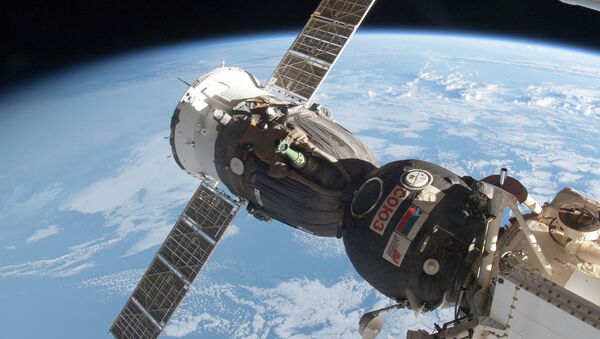Updated 06:50 a.m. Moscow Time
BAYKONUR (KAZAKHSTAN), September 26 (RIA Novosti) - Russia's manned Soyuz TMA-14M spacecraft has successfully docked with the International Space Station after reports said it had failed to unfold one of the two stowed solar arrays, a spokesman of the Roscosmos space agency told RIA Novosti early Friday.
"Fortunately, there was in the end no need for the cosmonauts to interfere with the work of the Kurs rendezvous and docking system. The spacecraft berthed with the Russian segment of the ISS in an automatic mode," the spokesman said.
The Soyuz-FG orbital carrier rocket blasted off earlier in the day from a launching pad at the Gagarin Start launch site at the Baikonur Cosmodrome in Kazakhstan.
The spacecraft is carrying an international crew that consists of Yelena Serova, Russia's first female cosmonaut in 17 years, as well as her fellow cosmonaut Alexander Samokutyayev and NASA astronaut Barry Wilmore.
Yelena Serova is the fourth female cosmonaut from Russia to ever fly in space, the first being USSR's Valentina Tereshkova who made history in 1963 as the first woman ever to go into space on a sole flight. Serova's flight has effectively ended spaceflight's 17-year male "hegemony."
A source in the space agency's mission control center earlier alerted RIA Novosti to a malfunction in one of the Soyuz' solar panels, which are part of the ship's power supply system. The agency's representative said however that the Soyuz spacecraft would keep to its six-hour docking schedule.
Soyuz TMA-14M's mission to the International Space Station will be the 123rd since 1967. The Soyuz spaceship is expected to remain on board the station as an emergency escape vehicle.


